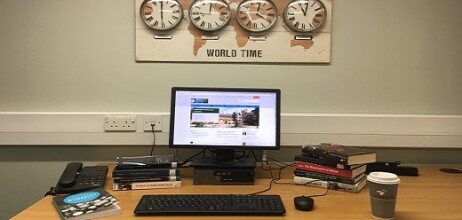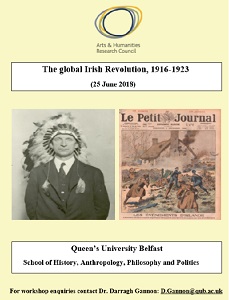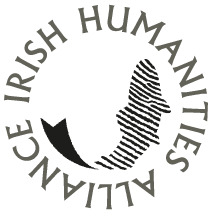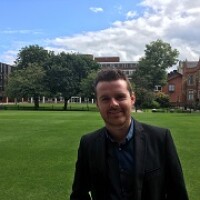Stop the Clocks: Writing global history on British Summer Time (BST)
The clocks go forward in the summer – fast-forward! The telescoping of time between academic terms is an all too familiar late-summer psychology. The halcyon days of June – career-defining book, well-placed journal articles, a summer stream of email-free ideas – seem to unconsciously slip into August melancholy – deadlines – edits – final checklists. This is the sunless silhouette of an academic historian, writing on British Summer Time (BST). But what is it to write beyond place and time? Since September 2017, I have been employed as Research Fellow to the AHRC-funded ‘A global history of Irish Revolution, 1916-1923’ project, at Queen’s University Belfast. Led by Professor Fearghal McGarry (Queen’s University Belfast) and Professor Enda Delaney (University of Edinburgh), this three year project (2017-20) explores the global impacts of, and influences on, Ireland’s revolution between 1916 Rising and Irish Civil War (1922-23), through original archival research in Africa, Australia, the Americas, and beyond. The project aims, ultimately, to produce global histories of the Irish Revolution, through publication, presentation, and academic engagement. Writing global history, accordingly, is an exercise in world-time management. Working from my office on University Square, I am transported to Toronto (conference invitation), Florence (funding application), Melbourne (research consultation), Tokyo (research collaboration). The clocks go forward and back daily for scholars of global history. The following offers a postcard-view of one such day at Queen’s, on British Summer Time.
Early morning optimism, via ‘Clements Coffee’, brings me to the McClay Library to continue a review article on the global Irish Revolution for the Journal of Global History. Queen’s, as library repository, has developed a growing global history specialism. Over four hundred print volumes in the McClay catalogue are categorised as global history studies; a further five hundred titles are available on its digital shelves. English, French, and German languages are on offer. Its holdings, further, counter-balance what Valentin Mudimbé has termed the ‘colonial library’, the collection, and study, of non-Western histories as ‘other’. Readings from the ‘global south’ are inherent in the McClay global history collection, with over five thousand narratives of African, Latin American and Asian history to choose from. This morning I choose Frederick Cooper’s Africa in the World: capitalism, empire, nation-state (Cambridge, 2014) and Andre Schmid’s Korea between empires, 1895-1919 (New York, 2002). Reading from these texts, and other historical geographies, prompts me to rethink the Irish Revolution, the way that it is researched, and the way that it is written. Was the Irish Revolution a divisive global experience: ‘West vs. Rest’? How can Irish historical scholarship integrate non-Irish History scholars? Has the existing historiography privileged Irish-island archives to the marginalisation of alternative, global sources? These and other questions occupy me until lunch.


Published: 28 Aug 2018 Categories: History, The Busy Season

